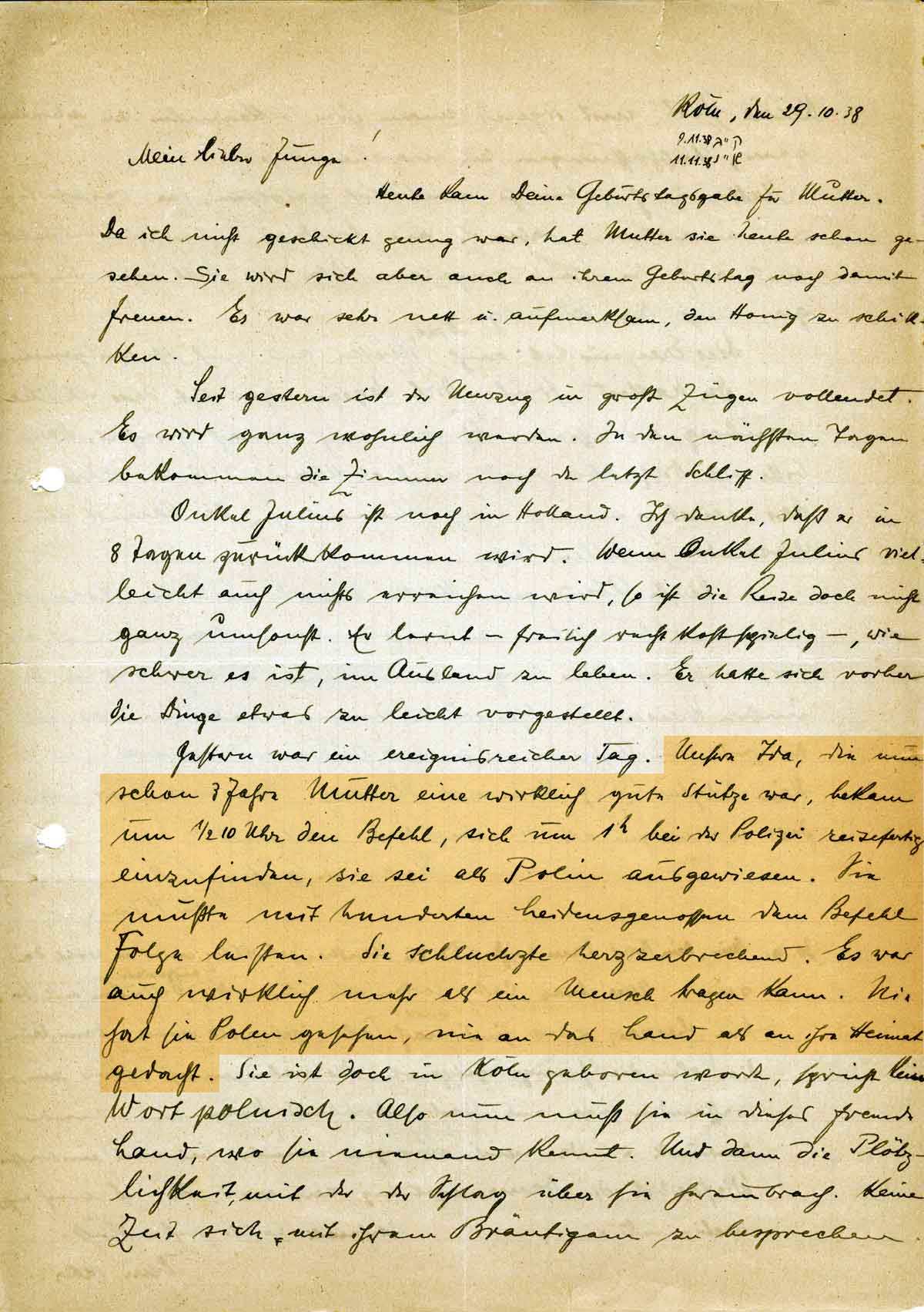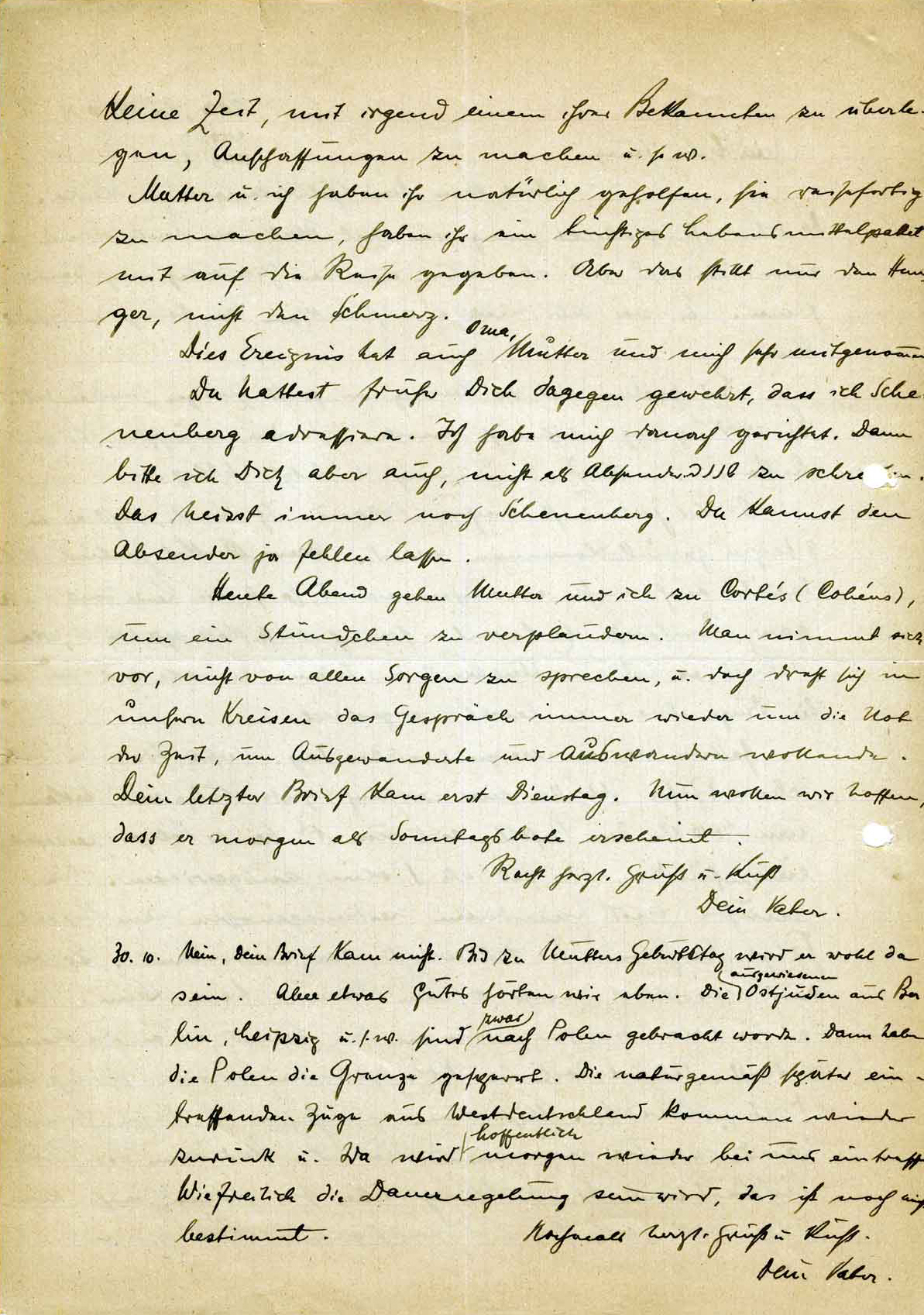The expulsion of Polish Jews
Die Vertreibung polnischer Juden



External links are disabled on the kiosk. Please visit archive links from desktop or mobile devices.






















BACK TO TIMELINE
Sign up for weekly updates:
Success
Thank you for signing up.
Error
You're already a list member.
Error
An error occurred, please try again later.










































Sign up for weekly updates:
Success
Thank you for signing up.
Error
You're already a list member.
Error
An error occurred, please try again later.
The Leo Baeck Institute – New York | Berlin presents the year 1938 through the eyes of Jews, whose personal documents detail their experiences and the hardships they suffered as well as the growing tensions in Europe and diminishing hope for Jews in Germany and Austria.

Curated by Leo Baeck Institute – New York | Berlin
© 2018 Leo Baeck Institute
Website and exhibition design by C&G Partners



COLOGNE
Fearing a massive influx of Polish Jews from Nazi-annexed Austria, the Polish parliament had passed a law in March 1938 allowing for the possibility of revoking the citizenship of anyone who had lived outside the country for at least five years. On October 15th, a decree was published according to which only persons with a valid control stamp in their passports would be allowed into the country. The decree was to go into effect on October 30th. In light of the presence of well over 70,000 Polish Jews in Reich territories, the regime acted fast: within the framework of the so-called “Polenaktion” (“Polish Action”), from October 27 to 29, thousands of Polish Jews were expelled by the Nazis. Many of these Polish citizens had little or no connection to their country of origin and they had nothing and no one to return to. One of the victims of the decree was Ida, the housekeeper of the Schönenberg family in Cologne. On October 29th, Dr. Schönenberg, Ida’s employer for the past three years, writes to his son Leopold in Palestine and describes how she had to report to the police with barely 3 1/2 hours prior warning. Ida was a native of Cologne and had a fiancé in Germany.



Curated by Leo Baeck Institute – New York | Berlin © 2018 Leo Baeck Institute
Website and exhibition design by C&G Partners